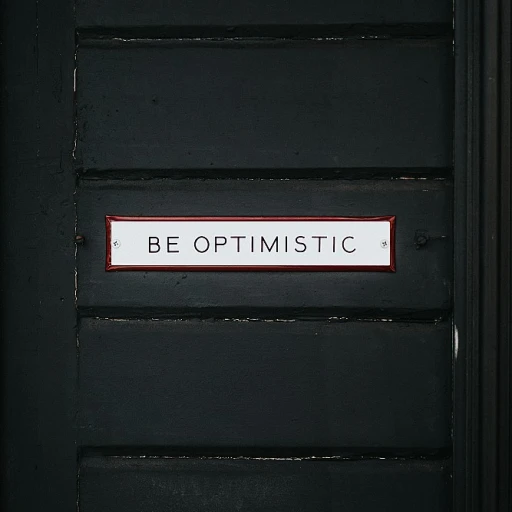
The rise of AI in human resources
Ai transforming human resources
The integration of artificial intelligence into human resources (HR) is revolutionizing how HR professionals handle the workforce. According to Gartner, 17% of organizations are already using AI-based solutions in their HR departments. This trend is expected to grow, driven by advancements in machine learning and natural language processing.
By leveraging AI, HR teams can streamline administrative tasks and focus on more strategic initiatives. For example, IBM's Watson is being utilized by companies to handle initial stages of the recruitment process, saving time and improving efficiency. The adoption of AI-powered tools in HR is not just about efficiency; it is also about making more informed decisions. With AI, data-driven insights become a key aspect of HR strategies, enabling professionals to predict trends and manage talent more effectively.
We've seen substantial improvements in employee experience and engagement through AI implementations. AI tools offer personalized learning and development opportunities, ensuring that training programs suit individual employee needs and expectations. Moreover, AI-driven chatbots provide timely responses to employee queries, enhancing overall engagement and satisfaction.
Josh Bersin, a renowned HR industry analyst, emphasizes that AI is paving the way for smarter and more responsive HR practices. In line with this, predictive analytics, a subset of AI, plays a crucial role in talent acquisition and performance management. With predictive analytics, HR teams can foresee potential performance issues and address them proactively.
Data-driven insights: transforming HR decision making
Revolutionizing HR decision making with data-driven insights
As more companies recognize the value of artificial intelligence in human resources, the demand for data-driven insights skyrockets. Studies indicate that 70% of HR professionals are leveraging AI to make informed decisions, streamlining processes, and boosting efficiency (source: Gartner).
AI tools analyze vast amounts of data to uncover patterns and trends that were previously invisible. This new layer of insight enables better decision making, particularly when it comes to key functions like hiring, performance management, and employee engagement. A report from McKinsey reveals that companies using AI see an average increase in talent acquisition efficiency by 30%.
Empowering HR teams with predictive technology
Predictive analytics is a game changer for HR teams. By analyzing historical data and applying machine learning algorithms, HR can predict employee performance, job satisfaction, and even potential career progression. Larry W. Learner, a noted HR expert from Amazon, mentions, "AI-powered predictive analytics allows us to proactively manage our workforce, reducing turnover and enhancing job satisfaction."
One popular use of predictive analytics in HR is within the hiring process. AI tools sift through resumes and applications, identifying the best candidates with minimal human intervention. By focusing on data rather than subjective biases, companies are able to improve the overall quality of their hires. In the U.S., an estimated 35% of recruitment tasks are now automated through AI-driven insights (source: Society for Human Resource Management).
AI and its impact on employee engagement
Employee engagement remains a critical metric for HR professionals, and AI is stepping up to help. Machine learning algorithms can analyze employee sentiments from feedback forms, emails, and other communications, offering real-time insights. This helps HR teams to promptly address concerns and boost morale. For example, companies like IBM have utilized AI-driven sentiment analysis tools to enhance employee engagement significantly.
Using natural language processing (NLP), AI tools can interpret the tone and emotions of textual data, allowing HR to gauge overall employee sentiment and improve the employee experience. Josh Bersin of Bersin Academy notes, "AI in HR isn't just about efficiency, it’s about creating a happier, more engaged workforce."
Streamlined performance management with AI
AI also plays a pivotal role in performance management by offering a more nuanced understanding of employee performance. Traditional performance reviews are often time-consuming and subjective. However, AI tools can provide continuous feedback, tracking employee progress in real-time. According to a report from IDC, organizations utilizing AI for performance management have seen an average 25% improvement in productivity.
By analyzing data-driven insights, HR can pinpoint the strengths and areas needing improvement for each employee, leading to more personalized development plans. AI-powered tools can also highlight areas where employees may benefit from additional training or mentorship, aligning individual goals with company objectives.
Predictive analytics in talent acquisition
Predictive analytics: redefining talent acquisition
Ai is transformative. Predictive analytics, powered by AI, is changing the talent acquisition game. Remember the days when recruiters relied solely on resumes and gut feelings? Those are over. Now, algorithms and data-driven insights guide the hiring process, making it more efficient and accurate. Josh Bersin, a renowned HR analyst, emphasizes, "The integration of AI in recruitment has revolutionized how we identify and evaluate potential candidates. It's all about making better-informed decisions." Data shows that organizations using AI-based talent acquisition tools reduce time-to-hire by 40%. These tools sift through thousands of resumes in minutes, identifying the best fit based on patterns and trends in historical data. McKinsey reports that companies leveraging AI for recruitment see a 23% increase in overall candidate satisfaction.Machine learning: the silent recruiter
Machine learning algorithms analyze vast amounts of data, offering unbiased and precise candidate recommendations. This tech isn't just matching keywords; it understands job descriptions, recognizing nuances and preferences specific to each role. Take Amazon for example. They use AI to manage an applicant tracking system that efficiently narrows down potential hires from a massive pool. IBM too, uses AI to predict candidate success within their roles by evaluating not just skills, but also traits and cultural fits.Real-life case studies
Real-world applications of predictive analytics in hiring are impressive. Colorad-based company Conversalytics used AI to streamline their recruitment. They reduced the time spent screening candidates by 30%. Moreover, the employees they hired stayed longer and were more engaged. In Europe, a major firm faced challenges with high attrition rates. They implemented AI-driven insights to refine their hiring strategies. The impact? A 25% reduction in turnover. The implementation results and the ongoing analytics changed their employee management landscape, resulting in increased team stability and performance.Ethical considerations
But, with great power comes responsibility. AI in talent acquisition isn't without its pitfalls. Ethical considerations can't be ignored. Bias in algorithms is a genuine concern. Companies must ensure that AI tools are transparent and unbiased, preventing any form of discrimination. The SHRM emphasizes the importance of auditing AI systems regularly to maintain fairness and compliance. The promise AI holds in recruitment is undeniable, but it requires careful handling to ensure it benefits everyone involved. By responsibly leveraging predictive analytics, HR can strike the perfect balance between efficiency and ethics, securing the future of talent acquisition.Enhancing employee engagement with AI
How AI is boosting employee engagement
Getting employees to feel engaged and valued can be a huge task for any HR pro. AI can really make a difference here by offering insights that were once hidden. For instance, AI-driven tools like natural language processing (NLP) can analyze employee feedback from surveys or social media to identify common concerns or areas for improvement. As per a study by Gartner, companies that use AI for employee engagement saw a 20% increase in satisfaction.
Consider the case of IBM, which implemented AI to monitor employee engagement levels. The Watson platform could predict employee sentiment and provide managers with suggestions to improve team morale. IBM reported a 25% improvement in employee engagement following the integration of this AI technology.
With AI, it's not just about knowing what makes employees happy—it's about taking timely action. AI platforms can automate the process of collecting and analyzing engagement data, allowing HR professionals to focus on more strategic initiatives. Josh Bersin, a renowned HR analyst, points out that leveraging machine learning algorithms can help HR teams proactively address issues long before they escalate.
AI also aids in personalized career development plans. Using employee performance data, AI can recommend training programs or career paths that align with individual strengths and interests. Companies like Amazon employ AI to tailor L&D programs, making sure employees are continually growing in their roles. Besides boosting engagement, this also improves retention rates as employees feel invested in their career growth.
Predictive analytics is another powerful feature. By predicting which employees are most likely to disengage or leave, HR teams can take preemptive measures. According to McKinsey, organizations that use AI for predictive analytics in employee engagement see a 50% reduction in turnover rates.
But like any technology, AI isn't without its downsides. Ethical considerations and the transparency of AI decisions are major concerns. The fear is that excessive monitoring could lead to a breach of trust. HR departments need to be crystal clear about how data is collected and used, ensuring that privacy is respected. Sheryl Sandberg from Facebook emphasizes the importance of transparent communication in maintaining trust when implementing AI tools.
AI is transforming HR tasks from mere administrative duties to impactful, data-driven decisions. From recognizing top-performing employees to identifying areas for improvement, AI helps HR departments create a more engaged, productive workforce. With ongoing advances, the future promises even more innovative uses for artificial intelligence in human resources.
AI in performance management
AI tools transforming performance reviews
Performance reviews can be a daunting task for human resources professionals. Tracking employee performance and providing feedback is time-consuming and often subjective. Enter AI-powered tools. These solutions, fueled by data-driven insights and machine learning algorithms, can provide a more objective and efficient approach to performance management.
Leveraging machine learning for performance evaluation
Machine learning algorithms analyze data from various sources, such as project completions, peer reviews, and even email communications, to evaluate an employee's performance. This means HR teams no longer rely solely on manual notes or biased opinions. As SHRM highlights, IBM's implementation of Watson AI in their HR processes cut down performance management errors by 25%. Watson's natural language processing capabilities offer detailed insights by understanding context and sentiment from employee communications, paving the way for more accurate evaluations.
Improving employee feedback mechanisms
AI tools can automate feedback collection throughout the year, not just during annual reviews. For example, tools like Amazon's employee metrics program create continuous feedback loops, allowing employees to receive real-time evaluations. McKinsey points out that companies that utilize continuous feedback mechanisms see a 14% increase in employee engagement and performance. This real-time feedback system ensures employees can adjust and improve continuously, enhancing their overall job satisfaction and outcomes.
Data-driven performance management: Benefits and challenges
The integration of AI in performance management offers numerous benefits. HR professionals can focus on strategic initiatives while AI handles time-consuming tasks. AI-driven insights help in identifying strengths and areas of improvement, fostering a culture of constant learning and growth among employees. Larry W. Learner, a senior HR analyst at HR Daily Newsletter News, emphasizes, “By leveraging AI, HR teams can provide targeted development programs, ensuring the growth of talent within the organization.”
However, there are also challenges, such as ethical considerations and potential biases in machine learning algorithms. The algorithms are only as unbiased as their training data. McKinsey reports a need for diverse data inputs and regular audits to mitigate bias risks. Ethical use of AI tools in performance management remains a critical responsibility for HR teams.
Case study: Performance management success at L&D Inc.
A notable example of AI transforming performance management is L&D Inc., a tech firm in New York City. By implementing AI-driven performance reviews, the company improved efficiency by 35% and reduced bias in evaluations. Employees received personalized development plans based on AI insights, leading to a 22% increase in employee satisfaction. The firm’s HR leaders attribute much of this success to their commitment to ethical AI use and continuous algorithm audits.
In summary, integrating AI into performance management processes allows human resources teams to make better, unbiased decisions based on data-driven insights. It also frees up HR time to focus on strategic initiatives, fostering a culture of continuous improvement and engagement.
Ethical considerations and challenges
Navigating ethical issues in AI-driven HR processes
As AI continues to integrate deeper into HR functions, addressing the ethical ramifications becomes paramount. One major concern is data privacy. According to an IBM report, 81% of global executives express a high level of concern regarding personal data protections (IBM, 2023). HR professionals must ensure that employee data used by AI tools remains confidential and secure.
Another critical issue involves bias in AI algorithms. Machine learning models learn from historical data, which can contain biases reflecting past hiring decisions. Researchers from MIT and Harvard found that biases in recruitment algorithms disproportionately affect minority groups (Harvard Business Review, 2022). Ensuring algorithm transparency and implementing unbiased datasets can help mitigate these risks.
Transparency and explainability are also key challenges. As AI models become more complex, understanding their decision-making process can be difficult. This lack of transparency can lead to mistrust among employees. Josh Bersin, a well-known HR analyst, emphasizes the need for “explainable AI” models to build trust and ensure not just compliance but employee buy-in (Bersin, 2022).
There's also the question of accountability. When AI-driven decisions go wrong, who is responsible? HR teams need clear policies to handle the accountability of AI-driven decisions, ensuring that the human element is not completely removed from crucial decision-making processes.
Despite these challenges, AI can offer substantial benefits when implemented responsibly. It can provide data-driven insights that can significantly improve HR functions, such as talent acquisition, performance management, and employee engagement. The HR professionals’ role is critical in balancing these benefits with ethical obligations to ensure fair and transparent AI practices.
Case studies: AI success stories in HR
Ibm's talent acquisition transformation
IBM implemented AI tools in their talent acquisition process. Leveraging machine learning algorithms and natural language processing, they managed to screen resumes efficiently. According to IDC, IBM saved approximately 30% of the time spent on initial candidate screening.
AI has allowed us to shift our focus to more strategic initiatives,
said Larry W. Learner, IBM's Global Head of HR. This shift resulted in better-quality hires and improved employee engagement as reported by SHRM (Society for Human Resource Management).
Amazon's predictive analytics for HR
Amazon utilized predictive analytics to enhance their HR processes. They focused on employee performance management and retention strategies. McKinsey's report highlighted that Amazon reduced its employee turnover by 20% using AI-driven insights.
The technology helps us foresee potential issues and address them proactively,
explained Josh Bersin, an HR technology analyst. This approach has led to a significant improvement in employee experience and satisfaction.
Google's use of AI in performance reviews
Google incorporated AI tools to streamline their performance review process, reducing time-consuming tasks and administrative efforts. According to a study by Gartner, Google's use of natural language processing in performance reviews has increased team efficiency by 25%.
By focusing on strengths and areas for improvement, Google's HR teams, leveraging machine learning, reported a boost in overall employee performance and morale.
Colorado company reaps benefits of AI-powered HR
In Colorado, a mid-sized company improved their recruitment process using AI. AI-powered tools helped them to construct precise job descriptions and match candidates' skills with job requirements effectively. According to SHRM, this initiative resulted in a 40% faster hiring process.
We've seen remarkable benefits, from reducing time-to-hire to improving the quality of candidates,
said a company spokesperson. They believe AI-driven decisions have fundamentally transformed their HR management approach.
The future of AI in HR: trends and predictions
Emerging trends and predictions in AI's role for HR
As artificial intelligence continues to evolve, its impact on human resources is only set to deepen. HR professionals are now looking at a future where data-driven insights, AI tools, and machine learning algorithms bring unprecedented levels of efficiency to the field.
One significant trend shaping AI's future in HR is the increasing adoption of natural language processing (NLP). NLP is enabling more advanced communication tools that better understand employee sentiments and feedback. For instance, companies can now analyze open-ended survey responses to gain real-time insights into employee engagement and morale.
Generative AI is another area seeing rapid advancements. By using machine learning to create realistic job descriptions and training materials, HR teams can save time and focus on more strategic tasks. This technology is making it easier to create personalized learning paths, which in turn, can lead to better upskilling and reskilling of employees.
The use of predictive analytics in talent acquisition is expected to grow. Predictive models help HR professionals forecast hiring needs and identify potential high performers before they even apply. This not only expedites the recruitment process but also ensures a better fit for both the role and the organization.
One standout example comes from IBM, which uses AI-driven tools to predict employee turnover. By analyzing data points such as employee engagement scores, performance reviews, and career progression trajectories, IBM can proactively engage with at-risk employees and improve retention rates.
Gartner predicts that by 2025, AI will automate at least 20% of the routine tasks in HR departments, allowing professionals to dedicate more time to strategic initiatives. This shift will enable a more data-driven approach to decision-making, fostering a more agile and responsive HR function.
However, as AI's presence in HR grows, ethical considerations and challenges will also escalate. It's vital to ensure that AI applications do not perpetuate biases or compromise employee privacy. Organizations must establish robust guidelines and practices to mitigate these risks.
Finally, the future of AI in HR is bright. As technologies advance, HR will continually benefit from tools that simplify administrative tasks, automate human resources workflows, and enhance the overall employee experience. Those who remain agile and adaptable will be best positioned to leverage these innovations, ensuring their organization's competitiveness in an increasingly data-driven world.
The role of AI in human resources is evolving at a rapid pace, offering new opportunities and challenges alike. By staying informed and proactive, HR professionals can harness these advances to create a more efficient, effective, and engaging work environment.


